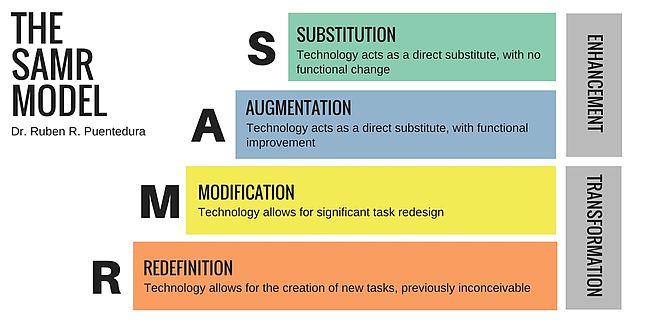 |
| Learn more about SAMR |
The good old days weren't really so good
Fast forward to today and many administrators and educators realize those good old days really weren't so good after all. Today, technology, is not a privilege. Equitable access to technology is a right. It allows students to do work that is real, relevant, and authentic in ways that are not possible or even conceivable without it. The introduction of technology is no longer an enhancement of what paper can do, it transforms what students can do. Additionally, technology makes learning accessible and inclusive for all students including those with disabilities and who aren't fluent in the language.New consequences for inappropriate use
At the Tech & Learning Leadership Summit that took place December 2019, leaders in technology and education discussed the new consequences for inappropriate use. Here were some ideas shared.Step 1: Lock down the filtering
Step 2: Only open it up after students have:
- Completed an online course in digital citizenship
- Met with the guidance counselor to address the issue
- Discussed the issue with their family and school staff
This strategy doesn't focus on punishment. It focuses on helping the student learn and grow.
Your turn
How does your school or district handle inappropriate use? Have you tried the ideas mentioned above? Others? What's worked? What hasn't?

No comments:
Post a Comment